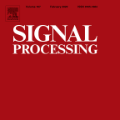Objective: Finding events of interest is a common task in biomedical signal processing. The detection of epileptic seizures and signal artefacts are two key examples. Epoch-based classification is the typical machine learning framework to detect such signal events because of the straightforward application of classical machine learning techniques. Usually, post-processing is required to achieve good performance and enforce temporal dependencies. Designing the right post-processing scheme to convert these classification outputs into events is a tedious, and labor-intensive element of this framework. Methods: We propose an event-based modeling framework that directly works with events as learning targets, stepping away from ad-hoc post-processing schemes to turn model outputs into events. We illustrate the practical power of this framework on simulated data and real-world data, comparing it to epoch-based modeling approaches. Results: We show that event-based modeling (without post-processing) performs on par with or better than epoch-based modeling with extensive post-processing. Conclusion: These results show the power of treating events as direct learning targets, instead of using ad-hoc post-processing to obtain them, severely reducing design effort. Significance: The event-based modeling framework can easily be applied to other event detection problems in signal processing, removing the need for intensive task-specific post-processing.
翻译:暂无翻译



